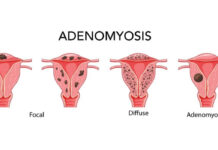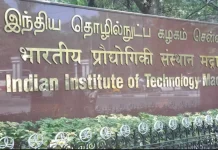My only fault was that I was a Muslim, Poor and Homeless
Dr. Suraiya Tabassum siyasat.net
It was a fatal day of 23rd September, 2021, when clashes occurred between the Police and all those who were identified as encroachers of a public land in Gorukhuti village, Sipajhar area of Darrang District of Assam. This incident took away two precious lives; one a young father and a child. Their only fault was that they were Muslims, Poor and Homeless.
12 years old Shaikh Farid was returning after collecting his Aadhaar card from the post office and became prey to the Police firing. A photographer named Bijoy Bepari who accompanied the Police was capturing this unfortunate event did not seem satisfied with the bullet piercing the chest of a young and an innocent child, he jumped over the dying child right over his chest. His devil mind and body enjoyed this act of heinous crime and Police Force present right in front did not make any effort to stop him. Video which surfaced clearly showed that one of the Police personnel was also beating the body of the child with a stick and devil photographer was jumping over the child’ body.
People like the Police Personnel who was seen in the video disrespecting the child’s body and Bijoy Bepari are criminal and threat to the society. How could they do such a mean act of Crime? One having the responsibility of maintaining the law and order and another one having the camera in hand and representing the 4th Pillar of Democracy. They need to be punished by the law of the land for two reasons; one for disrespecting their noble professions and second disrespecting the dead body.
We have a Holy Constitution and Article 21 guarantees the Right to Life including the Right to Dignity. Supreme Court and High Courts have extended this right to dead persons through their judgements time and again.
1. Supreme Court Cases:
i. In the case of Parmanand Katara v. Union of India, 1989 (W. P. (Crl) No. 270 of 1988, SCC (4) 286), the Supreme Court highlighted the importance of conferring dignity to dead persons. Again, it was reiterated by Apex Court in the case of Ashray Adhikar Abhiyan v. Union of India, 2002 (W. P. (C) 143 of 2001), that dignity of the dead must be maintained and respected. Moreover, it extended the right to the homeless deceased person to have a decent cremation according to the religious customs to which one belongs to, it also established a corresponding duty on the State to ensure that decent cremation is served to the person.
ii. In P. Rathinam v. Union of India, 1994 (SCC (3) 394), the ambit of article 21 was widened to include the dignity of a person. It emphasized that the right to life means a meaningful life and not merely animal existence. Further, this right to dignity was also expanded to a dead person.
- 2. High Court Cases:
i. In the case of S. Sethu Raja v. Chief Secretary, 2007 (W.P. (MD) No. 3888 of 2007), the Madras High Court directed the Government authorities to bring the dead body from Malaysia, so that burial can take place at home according to traditions and customs.
ii. Ramji Singh and Mujeeb Bhai Vs. State of U.P. & Ors, 2010 (PIL) No.- 38985 of 2004) – In this case the Allahabad High Court contended that a person’s right to life includes the right of the dead body to be treated with the same respect that he would have deserved if he were alive. It is imperative for the State to treat the corpse with dignity, and must only resort to postmortem if it is a necessity.
3. Provisions under Indian Penal Code, 1860:
Under the IPC, 1860, the rights of deceased persons include Right against trespass of burial sites, places of funeral rites, etc. under Section 297; Right against dishonest misappropriation and conversion of property under Section 404; Right against defamation under Section 499 and Right against criminal intimidation under Section 503.
4. Transplantation of Human Organs and Tissues Act, 1994 (THOTA): The THOTA regulates the removal, storage and transplantation of human organs and tissues for therapeutic purposes for preventing commercial dealings in human organs and tissues as well as matters connected therewith or incidental thereto. THOTA guarantees a deceased person the right to protect and preserve the human organs or tissue or both of the dead body from being harvested without his/ her consent or the consent of near relatives.
As per the Advisory issued by the National Human Rights Commission dated 14 May 2021 for Upholding the Dignity and Protecting the Rights of the Dead in the wake of COVID deaths, recognition of posthumous legal rights gives the dead significant moral standing within our legal system. The law also strives to honour a decedent’s wishes and to protect her/his interests. In both natural and unnatural deaths (accident, suicide, homicide, etc.), it is the duty of the State to protect the rights of the deceased and prevent crime over the dead body. It is also a requirement that the States/ UTs prepare a SOP in consultation with all the stakeholders so that the dignity of the dead is ensured and their rights are protected. The stakeholders include Hospital Administration, Police, Forensic Medicine personnel, District Administration, Municipal Corporation, Civil Society Groups, etc., as well as the citizens of the country.
International Framework Human dignity- Some of the international covenants and laws that deal specifically with the dignity of the dead are as follows:
1. Article 16 (II paragraph) of Geneva Convention 1949 IV provides “As far as military consideration allows, each party to the conflict shall facilitate the steps taken to protect the killed against ill treatments’
2. Article 3 (a) of the 1990 Cairo declaration on Human Rights in Islam provides “In the event of the use of force and in case of armed conflict- it is prohibited to mutilate dead bodies”.
3. UN Commission on Human Rights in a Resolution adopted in 2005, underlined the importance of dignified handling of human remains, including their proper management and disposal as well as of respect for the needs of families.
4. The UN’s Inter Agency Standing Committee’s Operational Guidelines on Human Rights and Natural Disasters recommend that appropriate measures should be taken ‘to facilitate the return of remains to the next of kin.Measures should allow for the possibility of recovery of human remains for future identification and reburial if required’.
5. International humanitarian law [Article 130(1) of the fourth Geneva Convention] provides that States should ensure that ‘graves are respected, properly maintained, and marked in such a way that they can always be recognized’.
Roles and responsibilities of the Police and Media to be mentioned specifically in the case discussed above-
Police: i. No delay in post mortem: The Police administration should ensure that there is no undue delay in calling a forensic team to the crime scene and in transferring the body of the deceased for postmortem examination. Transfer of the dead body to the hospital administration and submission of the complete inquest form should be done within the stipulated period of time.
ii. Handling of the dead body: In cases where death occurs due to fire accidents, self- immolation, murders, death due to sexual offences, custodial deaths, suicides, road and other accidents, the body of the deceased must be covered, handled with respect and sent to mortuary immediately for performing the autopsy procedures.
Media: i. Right to privacy and dignity: Media including social media must avoid explicit photographs or videos of dead bodies from being shown to the common public and must use masking techniques wherever the dead body is shown, so as to ensure that the right to privacy and dignity of the deceased person is not compromised.
ii. No derogatory remarks: Personal remarks or comments which are derogatory in nature, hampering the dignity of a dead person, should not be published
Basic Principles for Upholding the Dignity and Protecting the Rights of the Dead include no discrimination in treatment of the body in any form- To ensure that the dead body is properly preserved and handled irrespective of religion, region, caste, gender, etc., no physical exploitation- Any form of physical exploitation of the body of the dead violates the basic right of the deceased person, decent and timely burial/ cremation- The deceased person has the right to a decent and timely burial/ cremation, to receive justice, in case of death due to crime- The dead have the right to receive justice in cases where death occurs due to crime, to carry out a legal will- The will, if any, left by the dead must be respected and honoured, no defamation after death- The deceased person should not be defamed by any kind of statement or visible representation, made or published intending to harm his/her reputation, no breach of privacy- The deceased person has the right to privacy, i.e., the right to control the dissemination of information about one’s privacy.
Last but not the least how many times hate mongers will get freedom to take precious lives, the lives an important ones for any nation to thrive and be prosperous. People are treasure of a nation and providing them a safe abode is the State’s accountability.
Muslims Lives Matter, Any Lives Matter.
Acknowledgement -Excerpts taken from the Advisory issued by National Human Rights Commission (NHRC) dated 14th May 2021.(This author and Social Scientist is based at Delhi, India.)
(www.siyasat.net is Ahmedabad, Gujarat, India based Website, powered by Gujarat siyasat, a Fortnightly)
An Appeal For The Sake Of Upright & Fearless Brand Of Journalism
To sustain and improve our coverage. Gujarat siyasat- a vernacular Fortnightly and English٫ Hindi Website www.siyasat.net
Your little but timely support is needed
Bank details، GUJARAT SIYASAT, Current Account 204720110000318, ifsc code BKID0002047 BANK OF INDIA , VASNA BRANCH, AHMEDABAD GUJARAT INDIA
Also on Phone pay, Paytm,Google pay +91 9925531111
We hope you help and see siyasat.net grow. And rejoice that your contribution has made it possible.
सत्य को ज़िंदा रखने की इस मुहिम में आपका सहयोग बेहद ज़रूरी है। आपसे मिली सहयोग राशि हमारे लिए संजीवनी का कार्य करेगी और हमे इस मार्ग पर निरंतर चलने के लिए प्रेरित करेगी। याद रखिये ! सत्य विचलित हो सकता है पराजित नहीं।
Regards,
Team siyasat dot net
Ahmedabad.Gujarat india
































